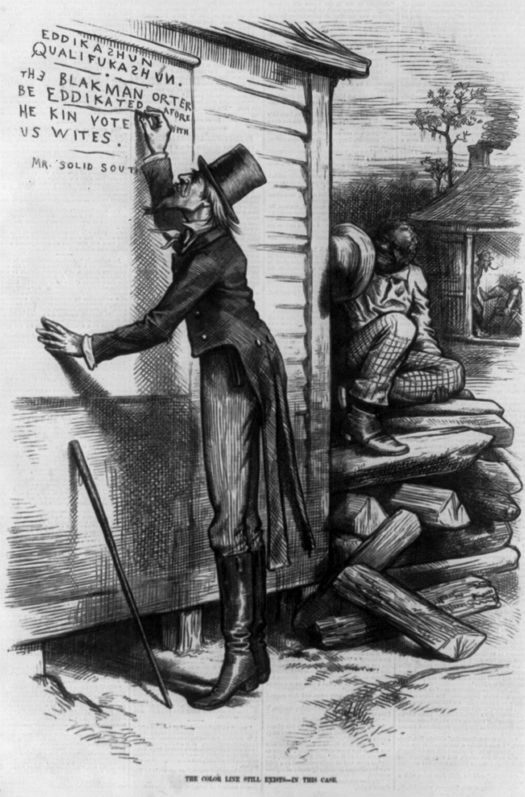| << Chapter < Page | Chapter >> Page > |
In some states, poorer, less literate white voters feared being disenfranchised by the literacy and understanding tests. Some states introduced a loophole, known as the
grandfather clause , to allow less literate whites to vote. The grandfather clause exempted those who had been allowed to vote in that state prior to the Civil War and their descendants from literacy and understanding tests.

In states where the voting rights of poor whites were less of a concern, another tool for disenfranchisement was the
poll tax (
[link] ). This was an annual per-person tax, typically one or two dollars (on the order of $20 to $50 today), that a person had to pay to register to vote. People who didn’t want to vote didn’t have to pay, but in several states the poll tax was cumulative, so if you decided to vote you would have to pay not only the tax due for that year but any poll tax from previous years as well. Because former slaves were usually quite poor, they were less likely than white men to be able to pay poll taxes.
![An image of a receipt. The receipt reads “State of Louisiana—Parish of Jefferson. Office of Sherriff and Tax Collector. Received of A. S. White resident of [sic] Ward, the sum of one dollar, poll tax for the year 1917 for the support of public schools”.](/ocw/mirror/col11995/m58983/OSC_AmGov_05_02_PollTax.jpg)
Although these methods were usually sufficient to ensure that blacks were kept away from the polls, some dedicated African Americans did manage to register to vote despite the obstacles placed in their way. To ensure their vote was largely meaningless, the white elites used their control of the Democratic Party to create the
white primary : primary elections in which only whites were allowed to vote. The state party organizations argued that as private groups, rather than part of the state government, they had no obligation to follow the Fifteenth Amendment’s requirement not to deny the right to vote on the basis of race. Furthermore, they contended, voting for nominees to run for office was not the same as electing those who would actually hold office. So they held primary elections to choose the Democratic nominee in which only white citizens were allowed to vote.

Notification Switch
Would you like to follow the 'American government' conversation and receive update notifications?